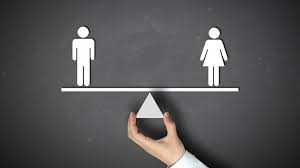Mental health and COVID-19: The questions that haunt
As a psychiatrist, I have been seeing more and more
cases of covid related mental health issues of late. I could observe various
themes in these clients. There were various reasons why someone got psychologically
affected during this pandemic. The insight grew deeper and clearer when I got
infected, along with my family a few weeks ago. Here in this blog, I have tried
to identify and address some common concerns or questions (based on my
experiences as a psychiatrist and also as an individual) that haunt us during
these testing times. For the sake of clarity, I have discussed these themes
under sections, each corresponding to a time zone.
When someone is not infected
During this period the major concern is “what if I get
infected?”, “How safe am I and my family” “Is it safe to step outside”. What we
should understand that stepping outside to get the essential stuff is
inevitable, and the risk of infection can be reduced to a bare minimum if we
follow safety protocols strictly, there is no need to panic. You can also go
for a walk or jog in non-crowdy areas if the local COVID protocols permit you
to do so. I have also seen some clients developing too much concern for
sanitization and display behavior almost similar to what we call
obsessive-compulsive disorder (excessive cleaning and sanitization), such
individuals need to understand that too much concern will not give any
additional protection to you, rather you will be prone for various physical and
psychological issues like sanitizer induced skin problems, phobia, depression,
etc. If you have noticed that your overcautious behavior is disturbing yourself
and your loved ones, you should seek professional help.
When someone is tested positive
I think this is the most difficult phase. The usual
questions that haunt are “will I infect my family?”, “will I recover?” and most
importantly “Am I going to die?”. It is advisable to separate yourself as early
as possible once you have symptoms (even before testing) to avoid infecting
others. If you have failed to do so, don’t panic, isolate yourself first, use
masks while moving around common areas of the house, avoid touching doorknobs,
handles as much as possible, if sharing the bathroom with others ask them to
sanitize it every time you use. There are many such examples where only one
member of the family is infected and others are safe.
Understand that COVID-19 infection is mild and
self-limiting in a large majority of people. Only a few people need hospitalization
and oxygen support. The recovery rate is above 90%, and only 1-2% of people die
due to COVID. This suggests that you have a high chance of recovering
successfully from COVID.
If you are asymptomatic or mildly symptomatic, indulge
in yoga, breathing exercises, engage in your hobbies like reading, painting,
music for some part of the day at least. Make a video call to your friends and
family for a casual chit chat.
After recovering from COVID-19 infection:
This is the phase where many still feel anxious about
various issues, mainly "is it safe to mix up with family?", "am
I completely out of danger?", "what if symptoms surge again?",
"what if I land up in some complications?". I have seen people who
continue to isolate themselves for months together from their family, and even
I faced the same problem, I was not very confident of eating along with my
family, sleeping beside them, and removing my mask even when home.
Usually, the virus stops replicating on the 10th
day in most cases, and the person stops infecting others within 12-13 days. So, two weeks of isolation is sufficient in most
uncomplicated cases. If you want to be a little more cautious, you can extend
partial isolation for one more week, during which, you can use common areas of
the house with a mask on and interact with family with the other person also
wearing a mask. Prolongation of isolation beyond three weeks is not only
unnecessary but also will affect your mental health negatively. In most cases,
once symptoms completely subside, the person is out of danger after 14 days. No
need to worry. To the best of my knowledge, no complications should trouble you
unless you had moderate to severe illness and had been hospitalized. Chances of
re-infection within 2-3 months are also extremely low. Hence relax and get back
to routine as early as possible. Start mingling with your family without fear,
start exercising you have stopped, of course in a graded manner.
Parting words:
Apart from what has been discussed, irrespective of
your COVID status, invest in your mental health. Adopt a healthy lifestyle,
avoid negative triggers like news and social media posts. Spend time with your
family. Remember, no health without mental health.
Dr.Bheemsain Tekkalaki
Consultant Psychiatrist
Sumana Psychiatry center
Belgaum


Great post boss. Short and sweet. One small suggestion, it will be more impactful for the general public if we have references for the numbers we cite. 👍
ReplyDelete#Nohealthwithoutmentalhealth
Thank you very much for your feedback Sir. Point well taken. Will try to incorporate some references or bibliography for further reading.
DeleteVery good write up sir 🙏
Delete